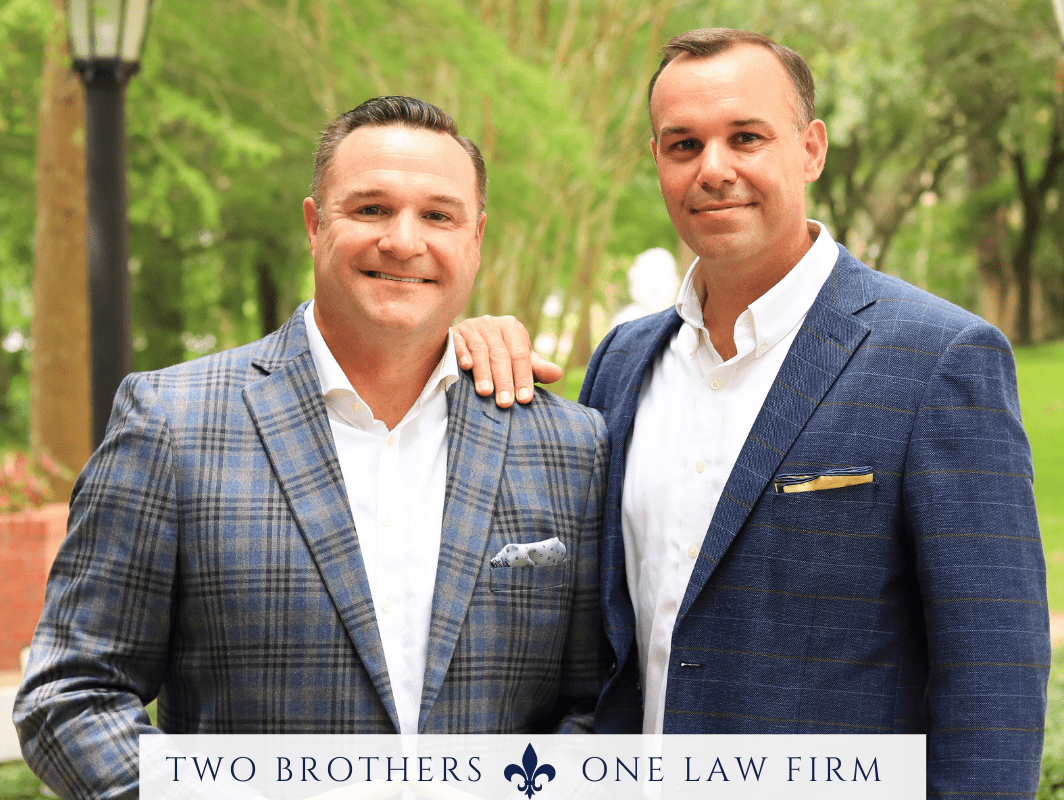
If you get injured at work, a lawsuit might not be available. You cannot typically sue your employer, and you certainly cannot sue if you were the one responsible for your accident. However, you still deserve compensation for the medical bills, lost earnings, and other harms you faced.
Workers’ Compensation can pay regardless of who caused the accident. You file a claim with your employer, and our lawyers can challenge denials and seek to get full benefits paid if your employer or their insurance carrier tries to keep you from the benefits you are owed. If you were hurt by a third party, we may also be able to sue them, even after you get Workers’ Compensation benefits.
For help with your potential case, contact our Workers’ Compensation lawyers at Schoenfeld Law Firm at (504) 688-7760 today.
Can You Sue Your Employer for a Work-Related Injury in New Orleans?
In many cases, you cannot sue for a work injury. Generally, lawsuits are not allowed against your employer for work-related accidents, and you obviously cannot sue if you were the only one at fault. In these cases, Workers’ Compensation can still cover you.
Although you cannot sue, Workers’ Compensation can pay benefits to cover your injuries regardless of fault.
Third-Party Lawsuits
Although you cannot sue your employer, you can still sue other parties. A common example of this is someone who is hit by a car while driving for work. They would have a Workers’ Compensation claim against their employer’s Workers’ Compensation insurance, but they can still sue the driver who hit them, as they would be able to for any other car accident.
The benefits you get in a Workers’ Compensation claim are quite limited, and you cannot get pain and suffering or full lost wages through that process. On top of that, property damage costs and other expenses might not be covered either.
In a lawsuit, you can recover the rest of these damages. Although Workers’ Compensation might have already paid you for some damages, you can still go back and sue for the rest against the at-fault party.
At the end of your case, your employer’s Workers’ Compensation carrier might get paid back anything they already paid you so you do not get paid twice, but this still leaves you with more damages paid than if you filed Workers’ Compensation alone.
What Injuries Are Covered Under Workers’ Compensation?
Workers’ Compensation covers a wide range of injuries:
- Traumatic injuries like broken bones, brain injuries, and amputations
- Progressive injuries and repetitive use injuries, like back injuries and tendonitis
- Cancer and other work-acquired illnesses.
Many jobs create different challenges, but injuries are covered across different fields and professions, as long as you are covered under the Workers’ Compensation system in Louisiana.
Benefits for Workers’ Compensation Claims in New Orleans
Workers’ Compensation pays faster than a lawsuit in most cases. There are strict deadlines for when your employer needs to respond to your claim, make decisions, and start payment. Because of this, we often turn to a Workers’ compensation claim first, even if it cannot pay for everything.
Medical Benefits
Workers’ Compensation should pay for all medical expenses to treat your work-related injury. However, there may be limits on the doctor you can use.
You are allowed to choose one doctor in each specialty, paid for by the employer or their insurer, to treat your injuries. However, the employer/insurer can require you to be examined periodically by their doctor.
Lost Earnings for Total Disability
You can typically get up to 2/3 of your average weekly wage while you are physically unable to work due to an injury on the job, called Temporary Total Disability (TTD).
The average weekly wage is based upon your earnings for the 4 full weeks before the accident for most hourly workers. TTD benefits are payable either weekly or bi-weekly, depending on how your wages were paid.
To get TTD benefits, you must be at a no-work status for at least one week. You are not entitled to your first week’s payment of TTD until you have been at a no-work status for at least two weeks. Your first payment of TTD benefits is owed on the fourteenth day after your employer becomes aware of your injury.
If these injuries prove to be a permanent total disability, they continue at the same 2/3 rate indefinitely.
Lost Earnings for Partial Disability
If your doctor releases you back to work with restrictions, the law provides for a wage-loss benefit, called Supplemental Earnings Benefits (SEB). This benefit is 2/3 of the difference between what you were earning before the accident (your average weekly wage) and what you are able to earn after the doctor releases you with restrictions.
This is not available if your post-injury work pays at least 90% of your average wage before the injury.
SEB is payable for a maximum of 520 weeks, including the time for which other indemnity benefits were paid.
Lost Earnings for Permanent Partial Disability
If you suffered an amputation or lost function injury that will partially disable you but still allow you to potentially return to work, then you have to look at the list of injuries in the statute to understand how many weeks of benefits you get.
These benefits are typically paid at 2/3 of your lost wages, but the number of weeks they are paid for depends on the injury. For example, a lost thumb pays for 50 weeks and a lost arm for 200 weeks.
Partial loss or lost function can be paid as a percentage of the number of weeks, equal to the percentage of function lost. For example, 30% lost function in your arm would pay for 30% of the 200 weeks, i.e., 60 weeks.
Returning to Work After Workers’ Compensation
You can return to work only once your employer gives you permission to do so. If you go back too early, you might forfeit your benefits by showing your employer you can work after all. If you can return to work, but not at full capacity, then your doctor’s note should explain the restrictions and accommodations you need.
As a rule, if your doctor releases you to work with restrictions, the employer/insurer will appoint a vocational counselor to conduct a labor market survey to determine your post-injury wage-earning capacity. The vocational counselor typically uses your doctor’s written restrictions, and in some cases, a functional capacity evaluation (examination by a physical therapist to determine your ability to perform certain physical functions), to locate jobs within your geographical area (30 miles) that are actually available within your restrictions.
Can You Settle a Workers’ Compensation Claim?
Many Workers’ Compensation claims are ultimately settled. This would mean that, instead of paying you week-to-week for your lost earnings and paying for medical care as it comes up, your employer’s insurance carrier would simply pay you the full value of your case up front in a lump sum settlement.
You should never accept a settlement before speaking with a lawyer. Our Workers’ Compensation attorneys need to make sure that you are satisfied with the values and that there is enough money to cover your future medical expenses and lost earnings.
This means we will need to look into estimates of how much longer you would have worked before your injury and how much longer the injury will keep you from work to determine future lost earnings. Similar calculations need to be done for future medical care, often consulting with medical experts along the way.
If you accept less than you need, you may end up paying out of pocket in the future. Our lawyers seek to prevent that and get your full needs covered.
How Can I Afford a Lawyer for Workers’ Compensation?
It has been our policy to not deduct any attorneys’ fees from our client’s weekly or bi-weekly indemnity benefits until we are able to obtain a suitable settlement on behalf of our injured client. If we cannot reach a suitable settlement for you, then you owe us nothing for our efforts.
Call Today for a Free Consultation on Your Potential Claim
Contact the Workers’ Compensation attorneys at Schoenfeld Law Firm at (504) 688-7760 for a free case review.



